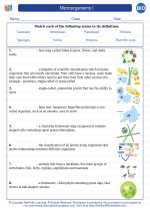Chloride
Chloride is an essential mineral that is commonly found in the body. It is an electrolyte, which means it helps maintain the balance of fluids inside and outside of cells. Chloride is also important for maintaining proper pH balance, transmitting nerve impulses, and regulating fluid balance.
Functions of Chloride
Chloride plays several important roles in the body, including:
- Helping to maintain proper fluid balance
- Aiding in the digestion and absorption of nutrients
- Regulating the body's acid-base balance
- Assisting in the transmission of nerve impulses
- Supporting proper muscle function
Sources of Chloride
Chloride is found in a variety of foods, including:
- Table salt (sodium chloride)
- Seafood
- Dairy products
- Meat
- Eggs
- Some fruits and vegetables
Deficiency and Excess
A deficiency of chloride is rare, as it is abundant in the diet. However, conditions such as excessive vomiting or diarrhea can lead to a loss of chloride and other electrolytes, resulting in an imbalance. Symptoms of chloride deficiency may include dehydration, muscle weakness, and irregular heart rhythms.
On the other hand, excess chloride intake, often in the form of excessive sodium chloride (table salt) consumption, has been linked to high blood pressure and other health issues. It is important to consume chloride in moderation and in balance with other electrolytes.
Study Guide
When studying chloride, it's important to focus on its functions, sources, and the potential consequences of deficiency or excess. Here are some key points to include in your study guide:
- Describe the functions of chloride in the body.
- List the sources of chloride in the diet.
- Explain the potential symptoms of chloride deficiency.
- Discuss the potential health risks associated with excessive chloride intake.
- Compare and contrast the roles of chloride and other electrolytes in the body.
By understanding the importance of chloride and its impact on bodily functions, you can gain a deeper appreciation for the role it plays in maintaining overall health and wellness.
.◂Biology Worksheets and Study Guides High School. Microorganisms I
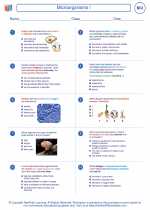
 Worksheet/Answer key
Worksheet/Answer key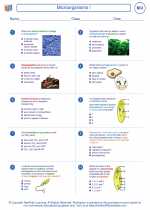
 Worksheet/Answer key
Worksheet/Answer key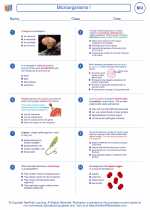
 Worksheet/Answer key
Worksheet/Answer key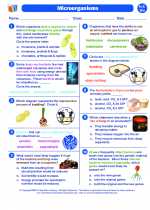
 Vocabulary/Answer key
Vocabulary/Answer key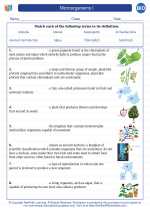
 Vocabulary/Answer key
Vocabulary/Answer key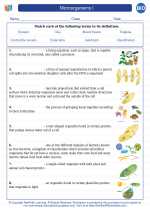
 Vocabulary/Answer key
Vocabulary/Answer key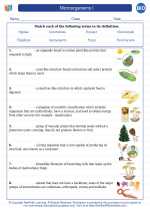
 Vocabulary/Answer key
Vocabulary/Answer key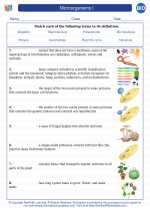
 Vocabulary/Answer key
Vocabulary/Answer key